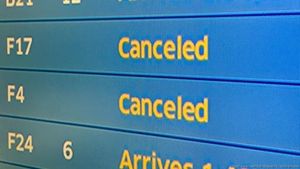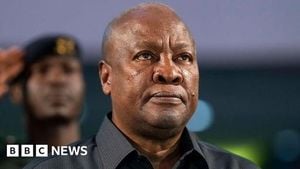South Korea's defense industry continues to strengthen its global partnerships as the nation enhances arms and defense cooperation, particularly with Poland and Estonia. Recent developments highlight significant arms deals, integration of military technologies, and responses to looming geopolitical threats, such as North Korea and Russia.
Poland stands out as one of South Korea's key partners, with over $16 billion worth of contracts signed since early 2022. Major South Korean defense firms, such as Hanwha Aerospace and Hyundai Rotem, have made notable contributions to Poland’s military modernization efforts. Hanwha has successfully signed export contracts for the K9 self-propelled howitzers and K-239 Chunmoo multiple rocket launchers. Meanwhile, Hyundai Rotem delivered K2 tanks and plans to deliver more units following their initial contract last year.
The significant financial investments from Poland come at a time when South Korea is rising as one of the world’s leading arms exporters. According to financial reports, the combined operating profit forecast for four major South Korean defense companies is projected to surge to approximately 2.114 trillion won, showcasing the strength of South Korea’s defense sector on the global stage.
Yet the political climate within South Korea is raising questions about the future of these partnerships. Following South Korean President Yoon Suk Yeol's controversial declaration of martial law on December 3, critics have characterized it as tantamount to an internal coup attempt. This political instability has left many wondering how it might impact economic relations and the defense sector, particularly considering the won’s depreciation against the US dollar.
Marek Świerczyński, head of security and international affairs at the Polityka Insight center, pointed out the potential long-term ramifications of South Korea's current political crisis on its defense cooperation with Poland. “The longer this crisis lasts… the worse for the future of strategic cooperation between Poland and South Korea,” he stated. Traditionally, arms deals like the ones being negotiated involve multiple tranches which are agreed upon over time. Poland's current challenges raise concerns about whether they will receive everything they need as South Korea manages its internal upheaval.
Despite these concerns, Polish authorities have sought to calm any fears. The Ministry of National Defense (MND) reassured stakeholders by stating, “the MND does not comment on the political situation in other countries,” asserting the stability of military contracts. Payments for military equipment from South Korea are made using US dollars, minimizing the sensitivity to fluctuations of the Korean won.
On the other hand, the reliability of supply chains from South Korea was also addressed. The Polish Ministry of State Assets indicated there should be no concerns arising from the current political climate affecting business relations built on long-term agreements. They emphasized, “the development of events in Seoul is being closely monitored,” ensuring adherence to contract timelines and obligations.
Shifting focus to Estonia, the defense collaboration with South Korea has also gained momentum. South Korean Defense Minister Kim Seon-ho and Estonian Defense Minister Hanno Pevkur met to discuss ways to bolster bilateral cooperation. The integration of South Korean K9 self-propelled howitzers has proven beneficial for Estonia's military operational capabilities, with future discussions revolving around cybersecurity, personnel exchanges, and expanded defense industry cooperation.
Minister Pevkur's recent dialogues with South Korea’s National Assembly Defense Committee and leading aerospace executives demonstrate the commitment both nations have to working closely on defense initiatives. During these discussions, officials voiced mutual concerns over military alignments from North Korea and Russia, emphasizing the need for collaborative efforts to address security challenges across Europe and the Korean Peninsula.
Further underscoring this collaborative spirit, Kim and Pevkur reiterated support for initiatives targeting improvement of training programs and protective measures against the destabilizing actions of military alignments between North Korea and Russia. Their discussions are also framed within the broader scope of international stability, which both nations understand is fundamental to their national interests.
The growing cooperation between South Korea and its allies reflects not only defense partnerships but also shared concerns over potential aggression from regional adversaries. Looking forward, both Poland and Estonia seem committed to sustaining and enhancing their relations with South Korea, which presents opportunities for mutual growth and stability, provided both parties navigate the current geopolitical and internal challenges effectively.
While South Korea’s internal political turbulence raises questions about the durability of its defense partnerships, the emphasis on long-term agreements and bipartisan support for defense exports remains promising. Industry leaders express confidence in their ability to deliver contracted systems on time, noting the cultural importance of reliability and responsibility ingrained within South Korea’s defense industries.
With substantial contracts driving economic ties and military modernization efforts, the relationship between South Korea, Poland, and Estonia is poised for future advancements as they collaboratively respond to geopolitical threats and strengthen their defense postures.



